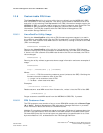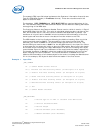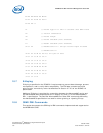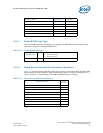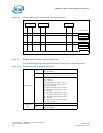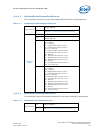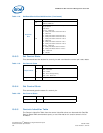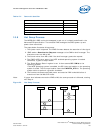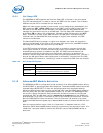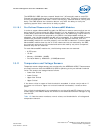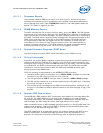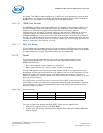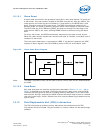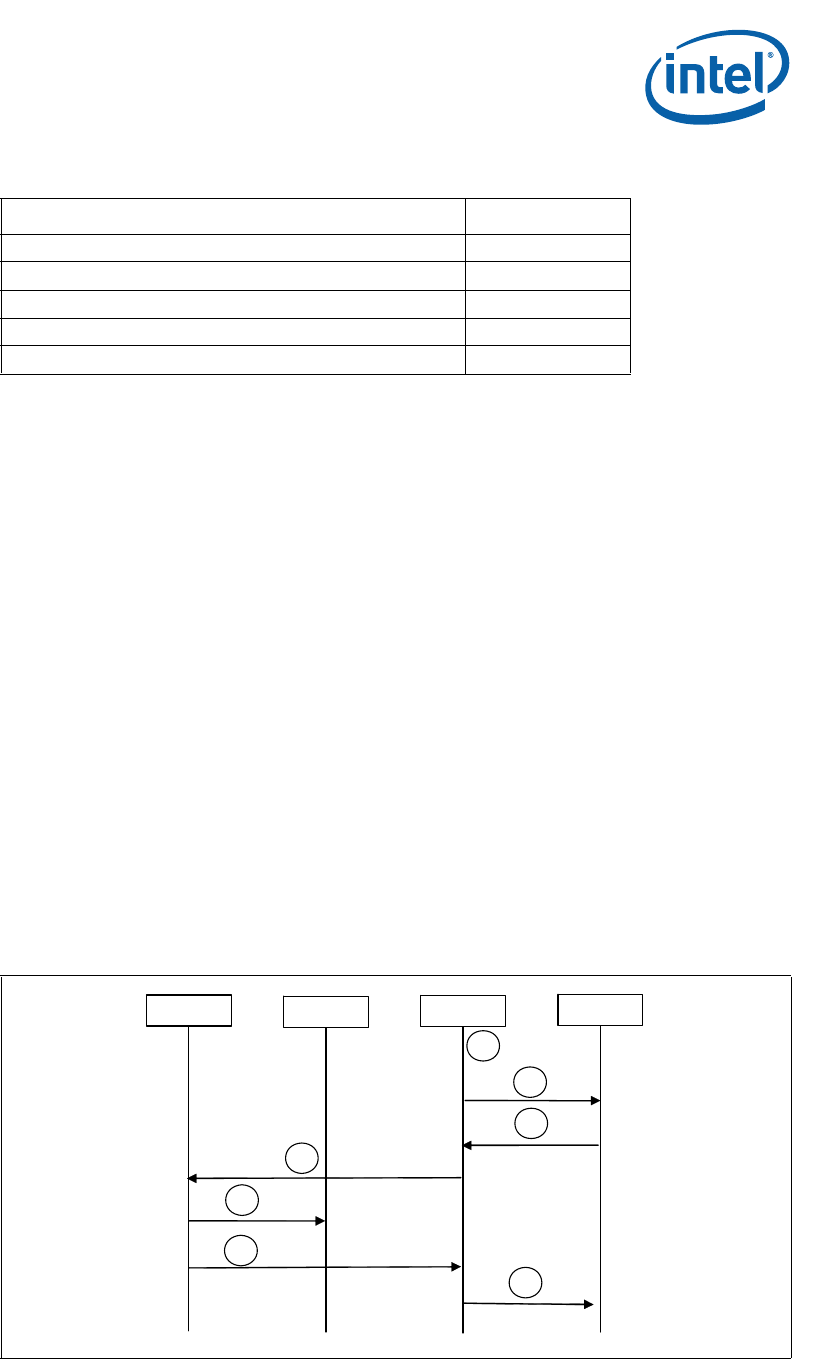
Intel NetStructure
®
MPCBL0010 Single Board Computer
October 2006 Technical Product Specification
Order Number: 304120 135
Hardware Management Overview—MPCBL0010 SBC
Table 121. Controls Identifier
10.9 Hot Swap Process
The MPCBL0010 SBC can be hot-swapped in and out of a chassis as defined in the
AdvancedTCA specification. The onboard IPMC manages the SBC’s power-up and
power-down transitions.
The steps below illustrates this process:
1. The ejector latch is opened. The IPMC firmware detects the assertion of this signal.
2. IPMC sends a Deactivation Request message to the CMM or shelf manager. The
M state moves from M4 to M5.
3. The board moves from M5 to M6 if the shelf manager grants the request.
4. The IPMC's ACPI timer starts if an ACPI-enabled operating system is loaded.
Otherwise, it goes to Step 6 below.
5. The ‘Power Button Status’ register is set. It then asserts SCI/SMI# to the
operating system.
If the ACPI operating system is enabled, the SCI interrupt handler on the operating
system is called. The interrupt handler clears the PWRBTN_STS bit. The operating
system starts to perform a graceful shutdown.
6. The firmware de-asserts payload power and sets the IPMI locked bit before it
transitions from the M6 to M1 state.
Note: If upper-level software moves the IPMC to M6, the same procedure is followed, starting
with Step 4.
Control Description Control Number
FWH Hub (for BIOS bank information)0 0
FWH 0 Write Protect 1
FWH 1 Write Protect 2
FWH 0 Top Block Lock 3
FWH 1 Top Block Lock4 4
Figure 24. Hot Swap Process
ACPI-OS
IPMC
CMM
ICH3
1
4
5
6
2
3
7



